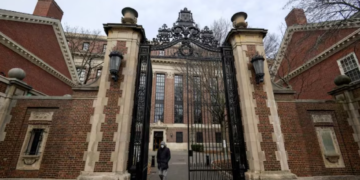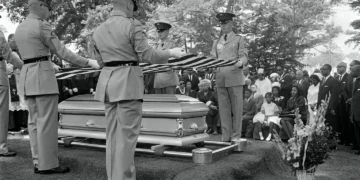Sep 11, 2024 Story by: Editor
The Oklahoma Supreme Court has declined to reconsider its decision to dismiss a lawsuit brought forth by the last two known living survivors of the 1921 Tulsa Race Massacre.
On Tuesday, seven justices of the court, without providing any commentary rejected the request from 110-year-old Viola Fletcher and 109-year-old Lessie Benningfield Randle to rehear the case. This request followed the court’s June ruling, which upheld a district judge’s dismissal of the lawsuit.
Justice James Edmondson expressed a willingness to rehear the case, while Justice Richard Darby abstained from voting.
Fletcher and Randle are among the few survivors of the massacre, widely regarded as one of the most horrific acts of violence against Black individuals in U.S. history.
During the massacre, which took place in Tulsa’s Greenwood District—often referred to as Black Wall Street—up to 300 Black residents were killed, over 1,200 homes, businesses, schools, and churches were destroyed, and thousands were forced into internment camps supervised by the National Guard. The violence was perpetrated by a white mob, including some individuals deputized by local authorities.
Following the filing of the rehearing motion in July, attorney Solomon-Simmons also urged the U.S. Department of Justice to investigate the massacre under the Emmett Till Unsolved Civil Rights Crime Act.
“President Biden sat down with my clients. He promised them that he would see that they get justice,” Solomon-Simmons stated at that time.
“Then he went to the next room and had a robust speech where he told the nation that he stood with the survivors and descendants of the Tulsa race massacre… we are calling upon President Biden to fulfill his promise to these survivors, to this community and for Black people across the nation,” Solomon-Simmons added.
The Emmett Till Act permits the reopening of cold cases involving violent crimes against Black individuals that occurred prior to 1970.
The lawsuit aimed to use Oklahoma’s public nuisance law to compel the city of Tulsa and other entities to provide restitution for the extensive damage caused during the massacre.
Attorneys argued that Tulsa has exploited the historic significance of Black Wall Street for its own financial and reputational gain, asserting that any revenue generated from promoting Greenwood or Black Wall Street, including income from the Greenwood Rising History Center, should be allocated to a compensation fund for the victims and their descendants.
Source: AP News

















